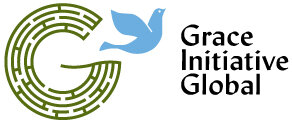Yvonne Lodico: Developing pathways for national healing and unity
In his inauguration speech, President Biden underscored the necessity for national unity, to end the divisiveness and to tackle the myriad challenges facing the country.
The Covid-19 pandemic has tested the social fabric, exposing disparities and inequalities as well as rising gender-based violence. Divisions have arisen as never before, along with the exigencies of climate change. While the causes and anguish are multifaceted, it seems that we need to heal, for mutuality and unity.
One pathway for national healing might include a process of trust building and reconciliation. To promote national healing, we need to reckon with the diversity of suffering, anger and dissatisfaction that exists. It is not only a top-down approach, but also a bottom-up process.
This process involves respectful discourse, acknowledging grievances and concerns, attributing the dignity of all people. Also, it is crucial that social policy makers do not engage in empathic failure — i.e., the lack of empathic concern and sensitivity toward all members of our society.
The pathway of healing requires a commitment for change to earn trust.
So, how do we get there, and where can we draw on resources to make this journey successful? For national healing to take place, we need a movement toward trust building, leading to reconciliation and forgiveness. Although religion is sometimes bound up in identity-based conflict, faith-based institutions can also help to “build bridges” for healing and unity, as religion can offer an appeal to embrace mortality, transcendence, virtue and human flourishing. Also, democratic governance is an important link to the fundamental right for religious freedom.
In approaching national unity, it will also be important to address why violent extremism is chosen to achieve ideological, religious or political goals. Perhaps we can draw from lessons in confronting extremism in other countries. For example, the Security Council in resolution 2178 (2014) found that countering violent extremism can take many forms. Common to all methods, however, is an emphasis on dialogue, inclusion and understanding. This may include forums for interreligious and intercultural dialogue, or platforms that bring together governmental, non-governmental actors and even the private sector.
U.S. leadership: The U.S. has a venerable tradition of peacemaking to build upon. Before the First World War, there were people who had similar ideals as Bertha von Suttner, Florence Nightingale and Henri Dunant, who changed the face of humanitarianism in conflict. The Rev. Martin Luther King received the Nobel Peace Prize for his critical role in civil rights, while maintaining a position of nonviolence and aggression.
With a domestic healing focus, such peace-building initiatives can be re-created again today in the U.S. This might also hold a significant key to recalibration of a U.S. international leadership role of boosting common understanding to achieve goals for inclusive sustainable development, climate mitigation and stability.
Build bridges, promote healing and forge unity: Just as now in the onset of the vaccination campaign, there are success stories of social solidarity. To this end, we endorse a plan for transforming divisiveness and distrust through promoting national healing to bring about national unity. We might even consider this process as a peace-building one.
The platform could derive from the U.N. General Assembly resolution for the International Day of World Human Fraternity, the first-ever day devoted to tolerance. It is based on the imperative to promote interreligious and intercultural dialogue; to encourage activities aimed at promoting dialogue to enhance social stability, respect for diversity and mutual respect and to create, at the global, regional, national and local levels, an environment conducive to peace and mutual understanding.
This resolution draws from the Universal Declaration of Human Rights. As Eleanor Roosevelt, an American, spearheaded this declaration, there is a strong and inclusive basis for an undertaking promoting a path for national healing and unity.
Signers of this commentary are Yvonne Lodico, founding executive director, Grace Initiative Global Inc.; Dr. Gregory Sterling of Yale Divinity School; Dr. Richard Mollica of the Harvard Program on Refugee Trauma; Sahar Al-Sahlani, a gender and interfaith adviser; Dr. Theodore Johnson of Brandeis University; Dr. Yehuda Lukacs, professor emeritus at George Mason University; the Rev. Nicholas Porter and Dorothy Meek Porter of Jerusalem Peacebuilders; Matthias Leitner, Peacebuilding adviser; and Dr. Paula Green of the Karuna Center for Peacebuilding and professor emerita of the School for International Training.

